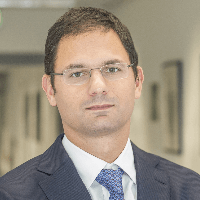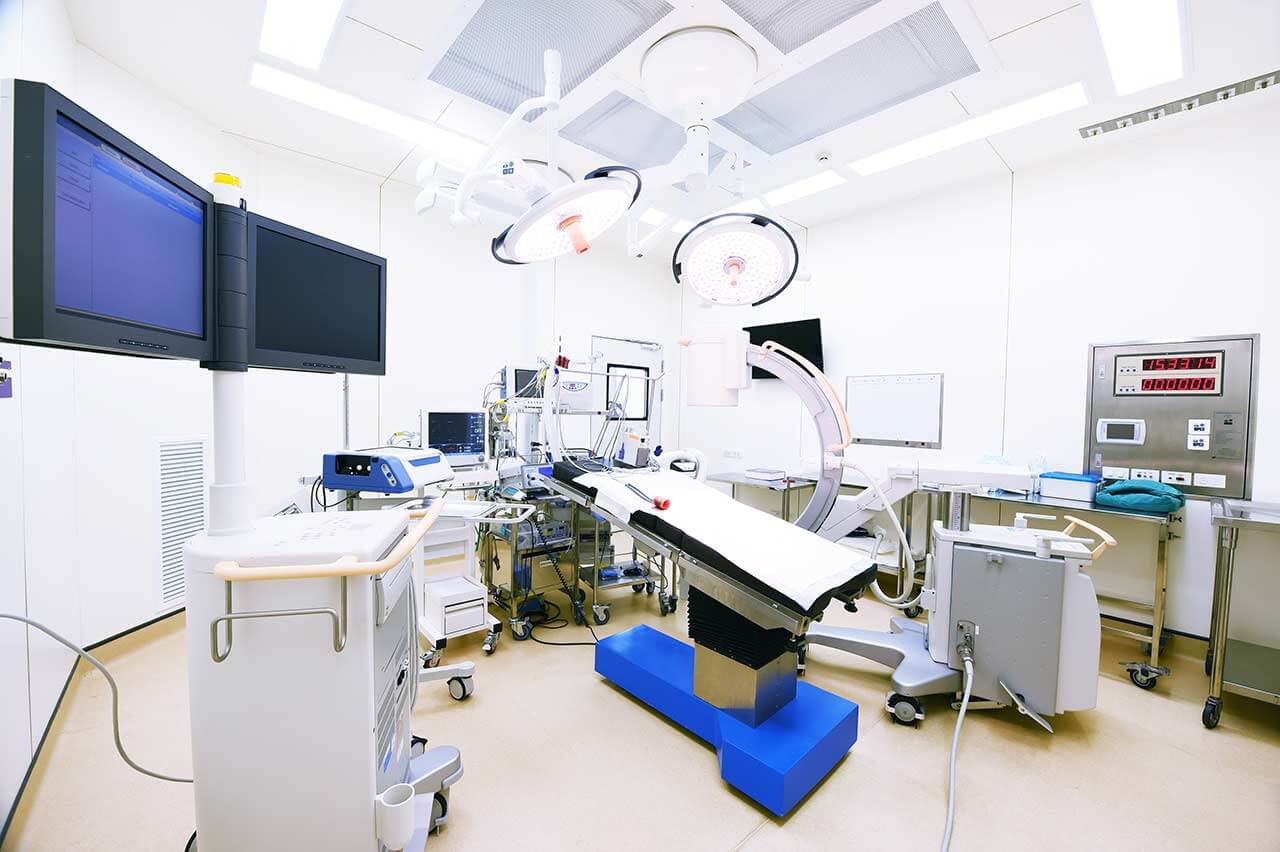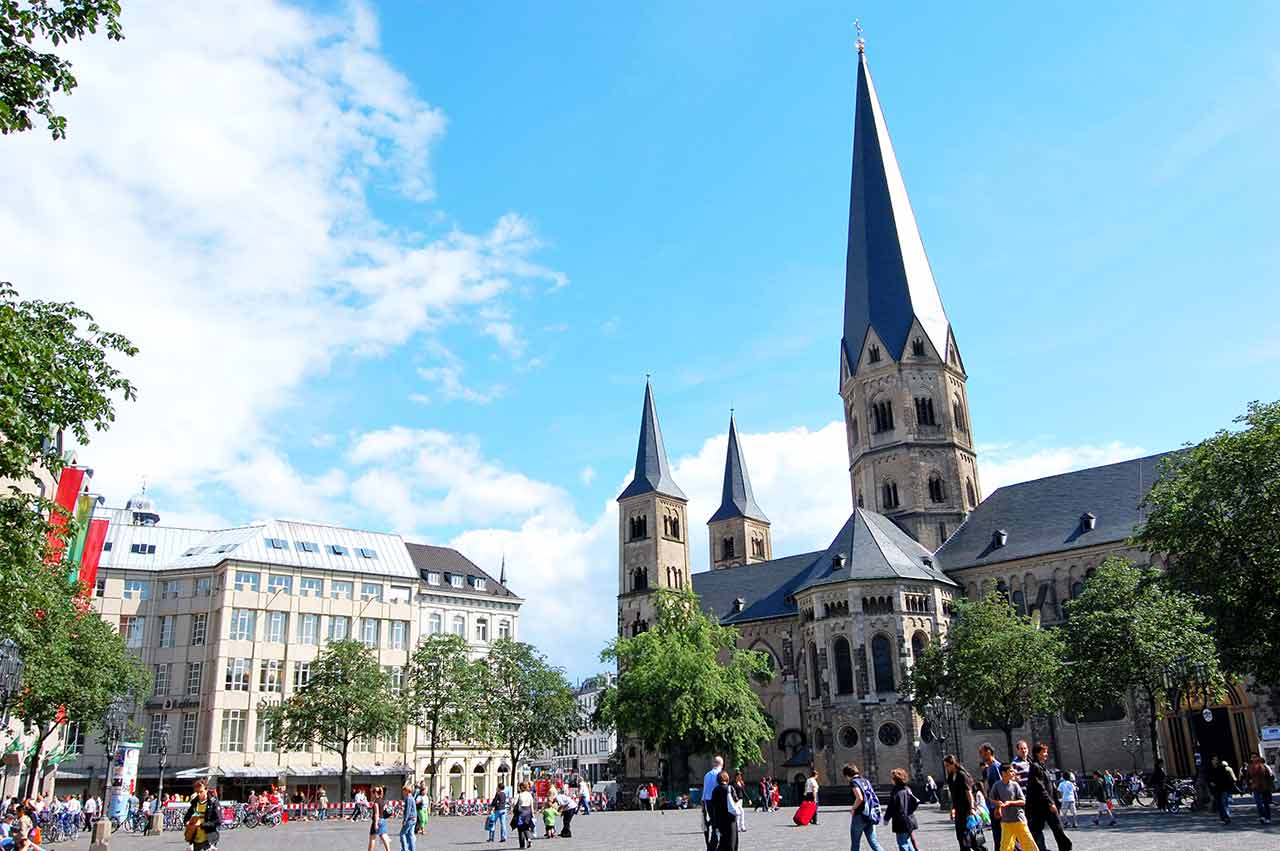
The program includes:
- Initial presentation in the clinic
- case history collection
- general clinical examination
- laboratory tests:
- complete blood count
- general urine analysis
- biochemical analysis of blood
- TSH-basal, fT3, fT4
- tumor markers (thyroglobulin (TG),
TG antibodies (TgAb)) - indicators of inflammation
- indicators of blood coagulation
- ultrasound scan of the thyroid gland
- thyroid scintigraphy
- radioiodine therapy
- symptomatic treatment
- cost of essential medicines
- nursing services
- stay in the hospital with full board in 2-bed room
- elaboration of further recommendations
How program is carried out
During the first visit, the doctor will conduct a clinical examination and go through the results of the available diagnostic tests. After that, you will undergo the necessary additional examination, such as the assessment of liver and kidney function, ultrasound scan of the thyroid gland and lymph nodes of the neck, thyroid scintigraphy. This will allow your doctor to assess how effective radioiodine therapy will be and how well you will tolerate it. In addition, the doctor will calculate the dosage of the drug you need.
Radioiodine therapy with I-131 includes oral administration of the drug. You will take 1 to 4 radioactive iodine capsules or drink about a teaspoon of liquid with radioactive iodine. You will take the drug in your ward, without visiting the manipulation room or operating room.
After taking radioactive iodine, you will stay in your ward for 24 to 48 hours. The next morning after the procedure, the dosimetrist will determine the amount of radiation in your body. If the amount is low, you will be allowed to leave your ward and will be discharged from the hospital. If the amount is high, then the dosimetric control will continue for another day, until a low amount of radiation in your body is detected.
The isotope I-131 can accumulate not only in the thyroid gland, but also partially in the salivary glands. This can cause dry mouth. To get rid of this side effect, you will dissolve sour candies, as this stimulates the work of salivary glands.
The drug is quickly excreted by the kidneys, and after 48 hours you will no longer pose a danger to others. After the procedure, you should drink at least 1 glass of water per hour and visit the toilet regularly. This will allow you to quickly remove radioactive iodine from the body. Food can be usual, without excess iodine in the diet.
During these 48 hours, you can read, use a mobile phone, tablet or computer. All these devices will not be a source of radiation in the future.
Control examination includes scintigraphy, which is performed 7-10 days after radioiodine therapy. Based on the results of the examination, the doctor will determine how well the cells of the thyroid gland (or cancer metastases) have accumulated radioactive iodine. In a few weeks after the procedure, you will have a control blood test for thyroid hormones. In the future, you will visit an endocrinologist regularly.
Required documents
- Medical records
- MRI/CT scan (not older than 3 months)
- Biopsy results (if available)
Service
You may also book:
 BookingHealth Price from:
BookingHealth Price from:
About the department
The Department of Nuclear Medicine at the University Hospital Bonn offers the full range of radioisotope diagnostics and treatment of various diseases. The department began its work in 1951 and today it is one of the leading and most reputable medical facilities of this kind in Germany. The clinical activities mainly focus on the detection and treatment of pathologies of the thyroid gland, heart, lung cancer, breast cancer, prostate gland, liver cancer and metastases, neuroendocrine tumors, malignant melanoma, and brain tumors. The doctors use only reliable, the most effective innovative methods of examination and therapy, which guarantee an optimal result. The department is headed by Prof. Dr. med. Markus Essler.
Since October 2014, the department has introduced and actively uses the very latest newest treatment method for prostate cancer. The Lutetium-177 PSMA therapy represents a unique option for the provision of targeted specialized medical care to patients with prostate cancer who do not have a positive dynamic during hormonal therapy or chemotherapy. Unlike the treatment with Radium-223, the advantage of Lutetium-177 PSMA therapy is its effectiveness in metastases to the lymph nodes or other organs.
The department’s priority is the diagnostics and treatment of thyroid diseases. The diagnostic capabilities include the ultrasound examinations, scintigraphy, puncture biopsy of the thyroid gland, while radiation therapy is the main therapy method in this field. The department’s physicians specialize in the treatment of "hot" thyroid nodules, Graves' disease, Hashimoto's thyroiditis, De Quervain's thyroiditis, amiodarone-induced thyrotoxicosis, goiter, thyroid cancer and thyroid dysfunction during pregnancy (in collaboration with the Department of Reproductive Medicine).
The service range of the department includes:
- Diagnostics
- Ultrasound examinations of the thyroid gland
- Thyroid scintigraphy
- Positron emission tomography and PET-CT
- Ga-68-PSMA PET-CT
- Myocardial scintigraphy
- Sentinel lymph node scintigraphy
- Lung scintigraphy
- Kidney scintigraphy
- Skeletal scintigraphy
- Bone mineral density measurement (osteodensitometry)
- Therapy
- Radioactive iodine therapy with I-131 for the treatment of benign thyroid diseases (functional autonomy of the thyroid gland, Graves' disease, goiter)
- Radioactive iodine therapy I-131 for the treatment of thyroid cancer
- Peptide-receptor radionuclide therapy (PRRT) with 177Lu-DOTATATE for the treatment of neuroendocrine tumors
- Selective internal radiation therapy/transarterial radioembolization with yttrium-90 microspheres
- Lutetium-177 PSMA therapy for the treatment of hormone-resistant metastatic prostate cancer
- Ra-223 therapy in prostate cancer with bone metastases
- Radiosynovectomy
- Radioimmunotherapy using 90Y-ibritumomab tiuxetan (Zevalin)
- Radionuclide MIBG therapy with I-131
- Yttrium-90 radioembolization (Y-90)
- Other diagnostic and therapeutic services
Curriculum vitae
Education and Professional Career
- 1989 - 1995 Study of Medicine at Ludwig Maximilian University of Munich.
- 09.11.1995 Medical examination.
- 1993 - 1996 Doctoral thesis defense at the Institute for the Prevention and Epidemiology of Hematopoietic Diseases, Muenster (under the direction of Prof. Dr. med. Peter K. Weber). Subject: "The role of Ras-like GTPases in the regulation of cytokinesis of myelomonocytic cells".
- 25.04.1996 Doctoral thesis defense with honors.
- 1996 - 2000 Research Fellow, Innenstadt Hospital, Ludwig Maximilian University of Munich.
- 2000 - 2002 Research Grant from the German Research Foundation, Burnham Institute, Cancer Research Center.
- 11.2001 Award from the US Department of Defense (breast cancer).
- Since 07.2002 Research Fellow, Department of Nuclear Medicine, Rechts der Isar Hospital Munich (Head: Prof. Dr. med. Markus Schweiger).
- 15.11.2004 PhD thesis defense and appointment to the position of PD in Clinical Pathophysiology at Ludwig Maximilian University of Munich.
- 26.06.07 Medical Specialist in Nuclear Medicine and Professional Certification of the Bavarian Medical Association.
- 10.2007 Appointment to the position of W3 Professor of Nuclear Medicine, University Hospital Ulm (refusal).
- 06.2009 Position in the Department of Nuclear Medicine at the Hannover Medical School (Successor of Prof. Dr. med. W. Knapp), 2nd place in the list.
- 07.2010 PhD thesis defense and appointment as PD at the Technical University of Munich.
- 11.2010 Appointment as the Clinical Senior Physician.
- 11.2010 Appointment as the Extraordinary Professor, Technical University of Munich.
- 06.2011 Invitation to the Department of Nuclear Medicine, University of Cologne (3rd place in the list).
- 12.2012 Invitation to the Department of Nuclear Medicine at the University of Vienna (2nd place in the list).
- 04.2013 Invitation to the Department of Nuclear Medicine (Successor of the Prof. Dr. med. V. A. Weber), 2nd place in the list.
- 05.2013 Invitation to the Department of Nuclear Medicine, University of Bonn.
- Since 11.2013 Head of the Department of Nuclear Medicine at the University Hospital Bonn.
Additional Qualifications
- 2010 University Certification in Medical Didactics, Carl von Linde Institut, Munich.
- 2011 Healthcare Management Certification, Medical Association of North Rhine, MIBEG Institute, Cologne.
Publications
- 60 publications in international journals, including the review activities.
- 33 publications as the first and last "Corresponding Author".
Patents
- Specific vascular peptide affiliated to breast tumors ("homing-peptide") for the administration of drugs into the breast tissue in precancerous conditions.
- 2003 Modifications of non-fibrillar collagen in tumor blood vessels and substances tropic to it.
- 2008 Peptides, which are specifically connected to a modified matrix metalloproteinase that breaks down collagen (registered model 20 2008 012716.59)
- 2013 Bi-213 labeled antibodies to the CD38 antigen in the treatment of multiple myeloma.
Memberships in Professional Societies
- German Society of Nuclear Medicine (DGN).
- European Association of Nuclear Medicine (EANM).
- Society of Nuclear Medicine (SNM).
- German Society of Radiation Oncology (DEGRO).
- Bavarian Society of Nuclear Medicine (BGN).
Photo of the doctor: (c) Universitätsklinikum Bonn
About hospital
According to the authoritative Focus magazine, the University Hospital Bonn ranks among the top ten medical facilities in Germany!
The hospital was opened on January 1, 2001, although in fact it inherits the medical facility, which operated at the Faculty of Medicine of the University of Bonn. The hospital in Germany combines all the highest standards of modern university medicine of the international level. A highly competent team of experienced physicians, which consists of more than 8,000 employees from various fields, takes care of the patients’ health.
The hospital has 32 specialized departments and 23 institutes, which implement the highest standards of treatment in Germany. On their basis, in addition to the successful clinical activities, the productive research and training of young specialists are carried out. Also, the hospital has 10 intensive care units and more than 30 cutting-edge operating rooms. They are equipped with the advanced surgical, navigation and monitoring systems, which provide sparing and the most effective surgical treatment. The total number of places for hospitalization is 1,250 beds.
The hospital presents all fields of medicine, while many of them are awarded by prestigious German and international certificates. For example, in 2007, the Comprehensive Cancer Center of the hospital became one of the four winners at the nationwide competition among Cancer Centers of Excellence. The research focuses primarily on the clinical genetics and genetic epidemiology, neurology, immunology and infectiology, hepatology and gastroenterology, and diseases of the cardiovascular system. The research findings contribute to the development of new therapeutic methods and overall improvement of treatment in Germany.
The main value for all employees of the hospital in Germany is human health, his individual needs and wishes, therefore, despite the high-tech infrastructure, the focus remains on the human attitude and respect for each patient.
Photo: (с) depositphotos
Accommodation in hospital
Patients rooms
The patients of the University Hospital Bonn live in cozy single, double and triple rooms, designed in bright colors. The standard room furnishing includes a comfortable bed with a remote control, a bedside table, a wardrobe, a table and chairs, as well as a TV and a telephone. Each patient room is equipped with an ensuite bathroom with toilet and shower. The hospital also provides enhanced-comfort rooms.
Meals and Menus
The patients of the hospital are offered tasty and balanced three meals a day: breakfast, lunch and dinner. Every day each meal features three different menus, including a vegetarian one. If you for some reason do not eat all the food, you will be offered an individual menu. Please inform the medical staff about your dietary preferences prior to the treatment.
Further details
Standard rooms include:
Religion
Christian priests are available for the patients at any time. Representatives of other religions may be requested at any time.
Accompanying person
Your companion may stay with you in your room or at a hotel of your choice during the fixed program.
Hotel
You may stay at the hotel during the outpatient program. Our employees will support you for selecting the best option.
The hospital offers a full range of laboratory tests (general, hormonal, tests for infections, antibodies, tumor markers, etc.), genetic tests, various modifications of ultrasound scans, CT scans, MRI and PET / CT, angiography, myelography, biopsy and other examinations. Treatment with medications, endoscopic and robotic operations, stereotaxic interventions is carried out here, modern types of radiation therapy are also used. The hospital offers patients all the necessary therapeutic techniques.
- Surgical treatment of the brain tumors, tumors of spinal cord and spine
- Replacement of all joints, resection arthroplasty
- Deep brain stimulation and vagus nerve stimulation in patients with epilepsy
- Multimodal complex treatment of Parkinson disease
- Thoracic endovascular aortic repair (TEVAR)
These are benign and malignant breast pathologies, malignant tumors of various localizations, neuromuscular diseases, stroke, retinal pathologies and various visual impairments, infertility, autoimmune diseases, epilepsy, coronary artery disease and myocardial infarction, leukemia and other pathologies.
- Ophthalmology
- Epileptology
- Reproductive medicine
- Hematology and oncology
- Neurosurgery
Over 8,000 highly qualified doctors and other employees work at the hospital.





